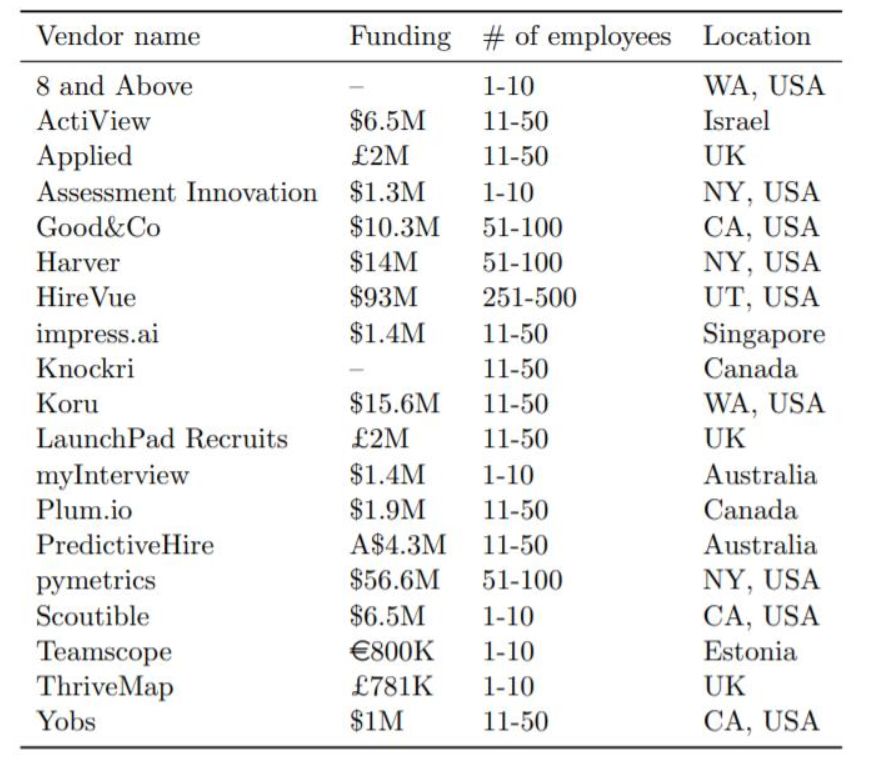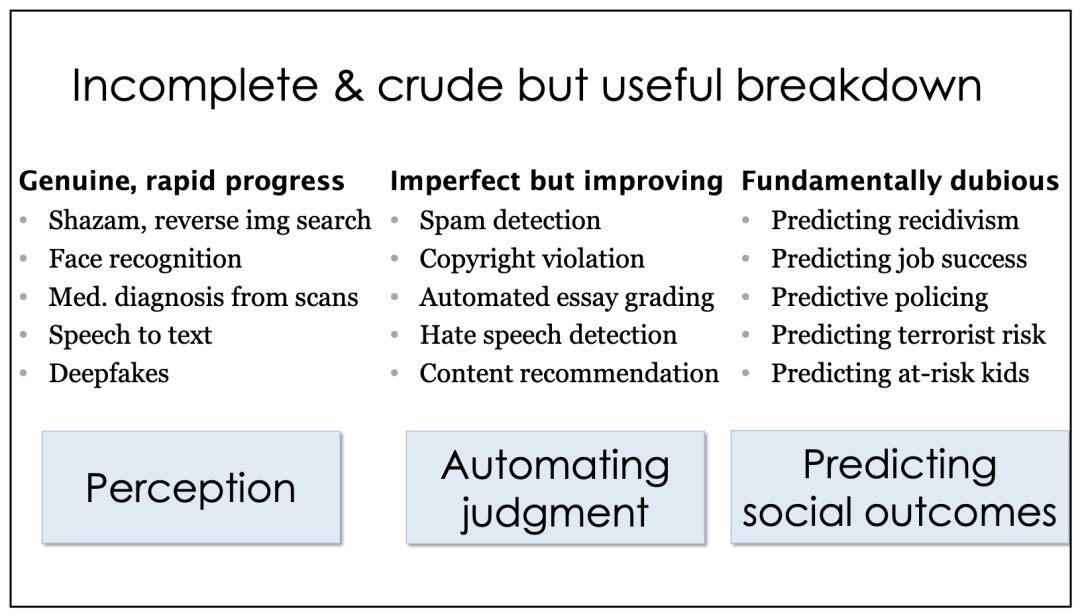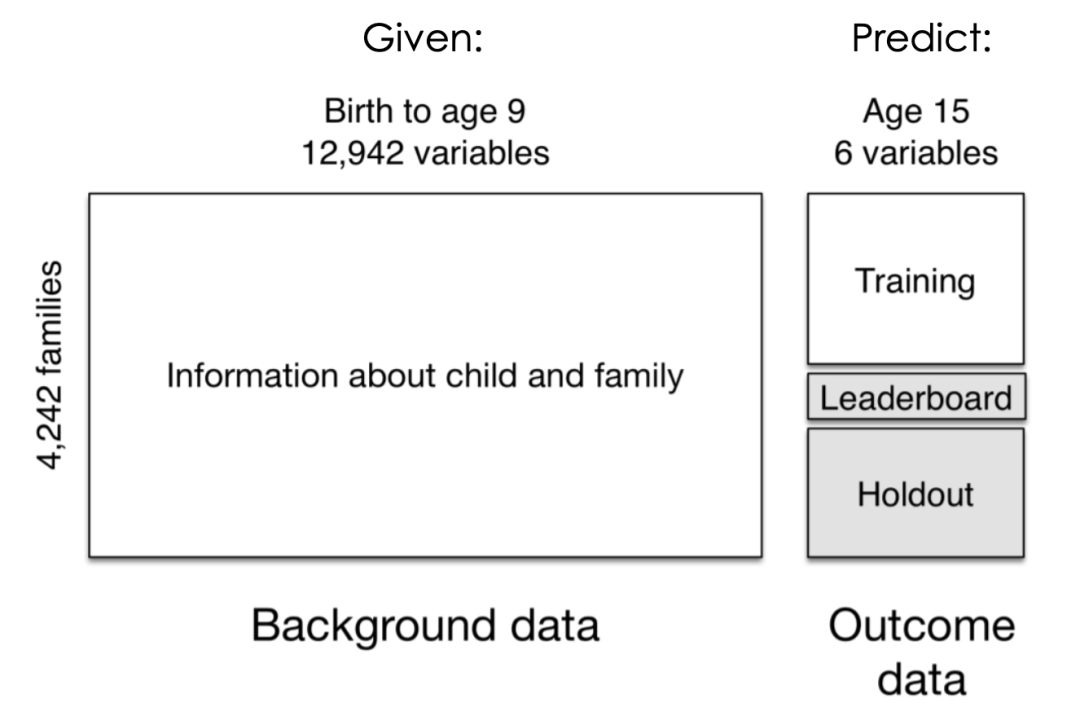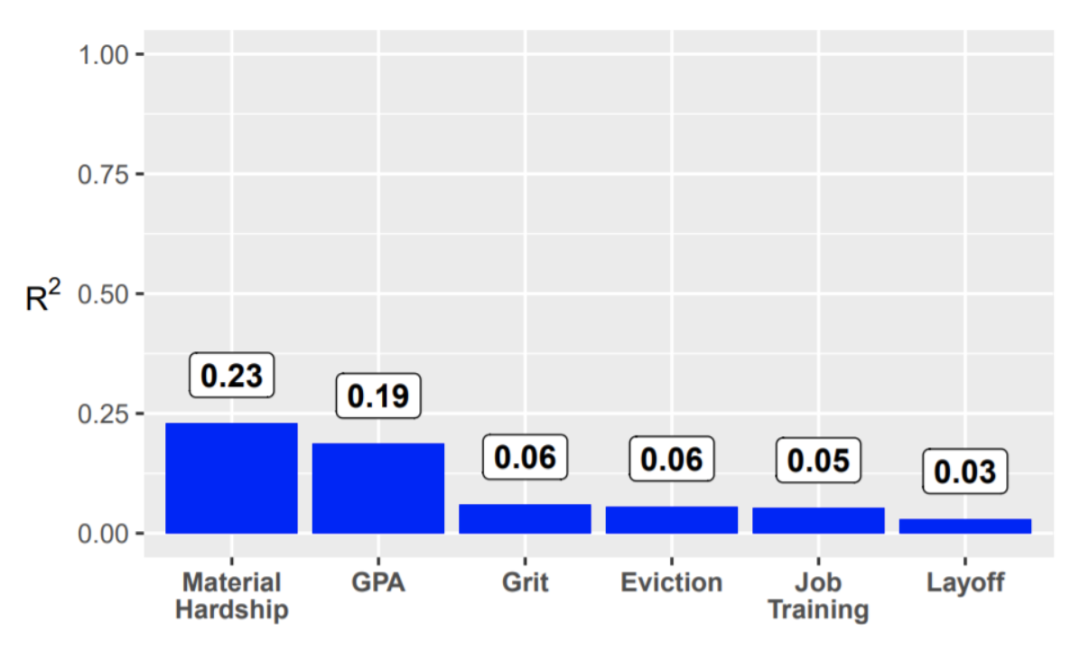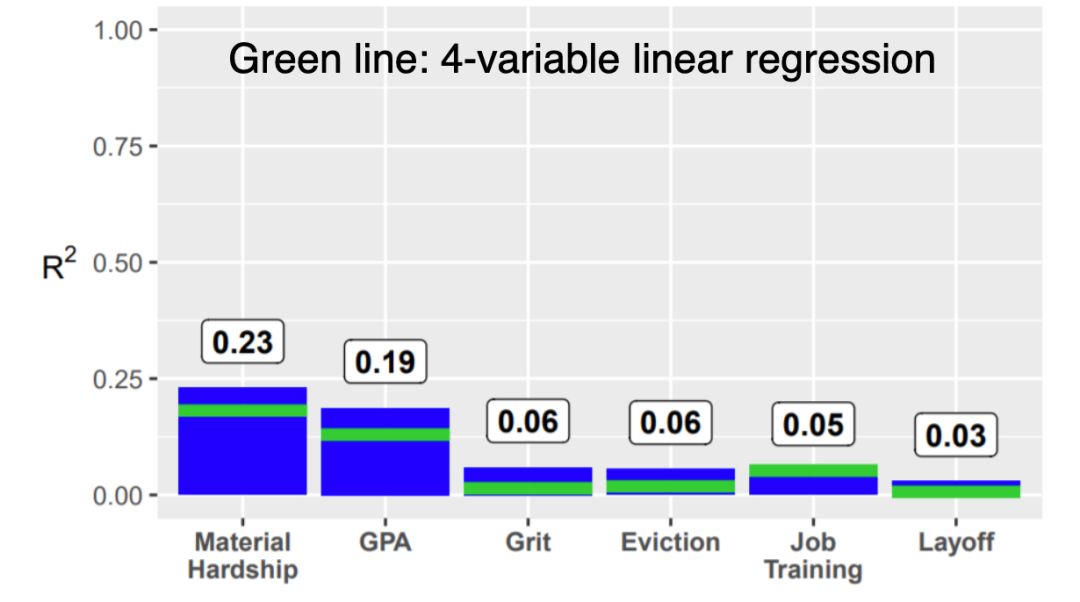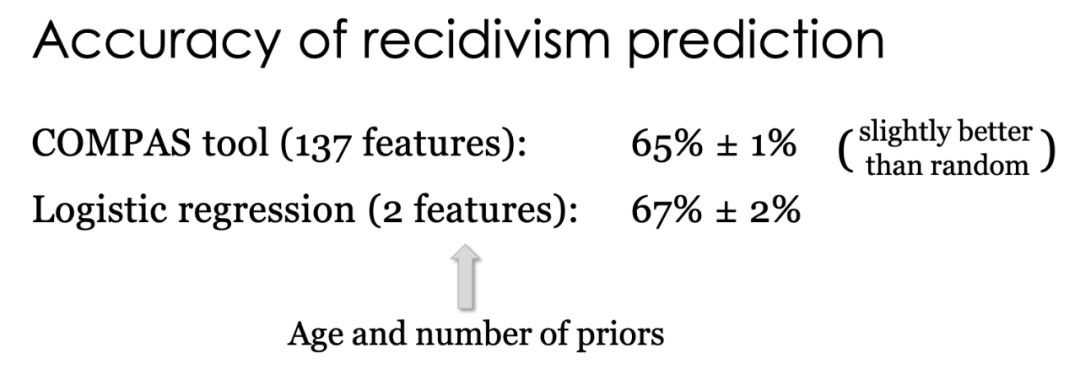AI Anti-fraud Guide
Editor’s Note: This article is from WeChat public account “Quantum ” (ID: QbitAI), author fish sheep.
In the AI era, “pseudo-AI” products that were deceived in the name of AI are not uncommon, and even more widely affected.
An associate professor of Princeton CS named Arvind Narayanan could not sit still. He shelled:
In order to sell goods, some companies use the public’s incomprehensibility, regardless of what is sold, which is labeled “AI”.
What’s even more frightening is that good AI like AlphaGo has attracted a lot of investors. Under the aura, “pseudo-AI” products can also raise huge amounts of money, even under the impetus of capital, becoming a trend that affects more and more people.
Avent is an example of an AI interview. Now, millions of job seekers around the world have experienced or are experiencing the “gaze” of AI interviewers.
There are more than one company offering such products, the most well-known HireVue, which claims that more than 700 companies worldwide use their products, including some of the world’s top 500 companies. At present, the company has raised funds of 93 million US dollars (about 655 million yuan).
△ Cornell University Survey Results
Avond pointed out:
There is no peer-reviewed evidence to show that these things really predict job performance. Millions of job seekers face only a well-designed random number generator.
It’s doubtful, it’s not just about this kind of product.
In order to prevent everyone from being harvested by such the latest “intellectual tax”, Arvind is determined to teach you how to identify the scammers in the AI world.
His “Anti-fraud Guide” appeared for a few hours and has already earned 1,500 likes on Twitter.
What does the AI liar look like
First, Arvind believes that current AI applications can be divided into three categories:
-
Real and effective projects
-
Incomplete but well-developed projects
-
Unreliable projects
Summary, AI’s performance is more reliable in the cognitive tasks such as face recognition and automatic judgment tasks such as recommendation algorithms.
And the “pseudo-AI” suspects do what is predicted to be “future” related to people.
People can’t predict that the future should be common sense, but when it comes to AI, common sense is always left behind.
Of course, the mouth said nothing, Arvind cited a study of the University of Preston’s Fragile Family and Child Welfare Study (address at the end of the article).
This study aims to determine whether children’s performance is predictable.
The process is like this: first collect data on a large number of children and their families through in-depth interviews and family observations. Then, use these data to train the prediction model. The input variables are nearly 13,000, and the output will predict the performance of these children at the age of 15 .
If the model can perfectly predict the result, R^2=1, if the model does not learn, R^2=0.
But the results of the training made the researchers involved in the study stunned.
Even the best-performing model, none of the predictions are convincing, and it is even better to fit the model with a linear regression of four variables.
△Green Line: 4-variable linear regression results
This result is not a case. In a predictive study of recidivism rates (see the end of the paper link), the prediction accuracy of AI is only a little better than the random result, or 2 percentage points lower than the result of logistic regression.
And, not only is the prediction result unreliable, but such prediction AI also implies more risks.
First, training such AIs requires collecting a large amount of personal privacy data. No one can guarantee that this data will be absolutely safe.
Secondly, people’s blind trust in such AI will make the right to speak in a field, from domain experts and practitioners, to large-scale technology companies that master AI.
More importantly, the black box property of AI makes its results unexplained.
It’s like an example of an AI interview at the beginning. The AI interviewer gave you a low score. No one can explain it. It’s because you’re not confident enough, or the noise around you has affected it. Judge.
Not every AI is called AlphaGo. Arvind admits that artificial intelligence performs very well on certain tasks, but if someone regards AI as a panacea, just to get a piece of AI on the AI vent, then it is necessary to polish the eyes, the objection should be against Resist the boycott.
One stone stirs up a thousand waves
The world is suffering from “pseudo AI” for a long time. Arvind’s “Anti-fraud Guide” was launched on the social network and sparked heated discussions.
Someone blames the term “artificial intelligence” for its marketing color. If you want to discuss technology, you should change a word.
Someone mentioned that even tech giants like Facebook and Google are falsifying AI.
Note: Google can automatically call and be praised by the Turing Test AI Duplex, which was exposed by the New York Times for 4 successful completions, 3 times by manual .
Some people think that real AI will change the rules of the game, so that people can’t ignore it and don’t need to advertise.
Someone added the “Anti-fraud guide”:
I have interviewed such an AI startup company. LinkedIn shows that they are dismissive of developers, but they are very concerned about the “trainers”.
I doubt if they are really making AI.
Since AlphaGo’s blockbuster, shocking the world, artificial intelligence has gradually been pushed to the high ground, attracting a large amount of funds, talents, and attracting the attention of the public. Among the vents, the real hardcore technology shines, and among the light, it also hides the speculators.
But the indiscriminate will eventually show up. What do you think?
And, what AI project do you think is “pseudo AI”?
Transportation Gate
PPT address:
https://www.cs.princeton.edu/~arvindn/talks/MIT-STS-AI-snakeoil.pdf
Hacker News Discussion:
htTps://news.ycombinator.com/item?id=21577156
Preston University’s Fragile Family and Child Welfare Study:
https://fragilefamilies.princeton.edu/about
Recidivism prediction:
https://advances.sciencemag.org/content/4/1/eaao5580
